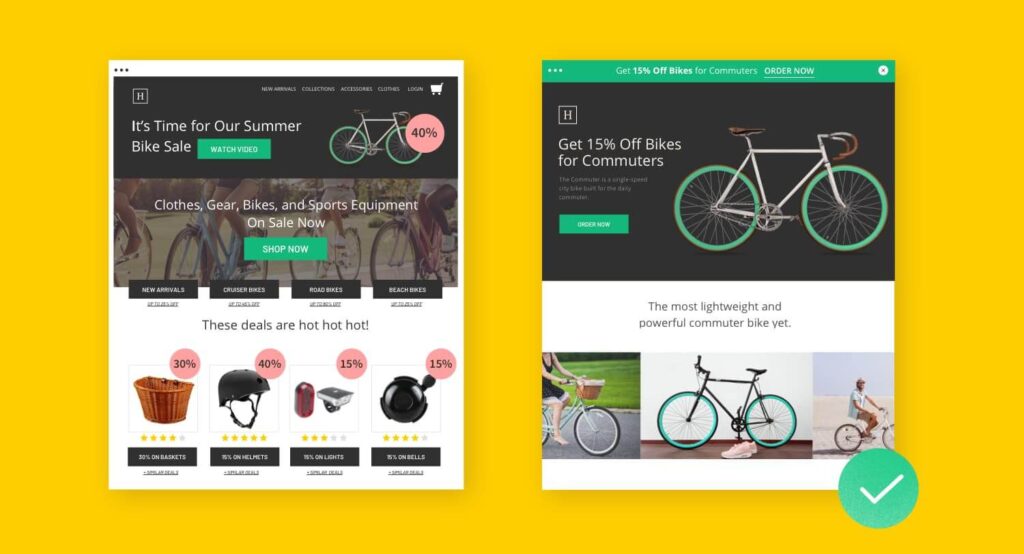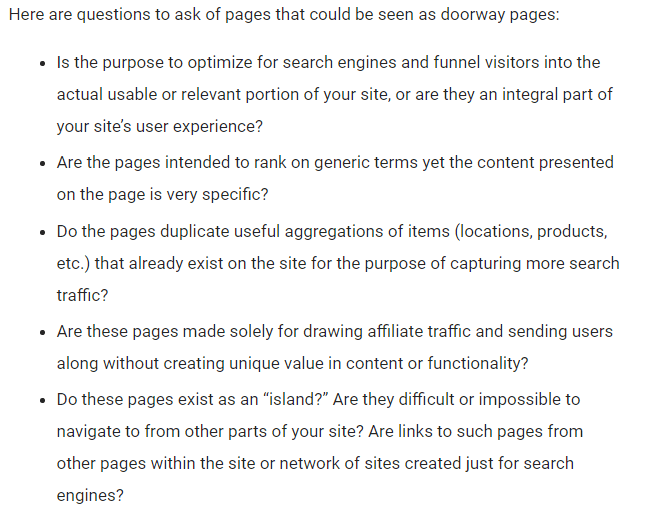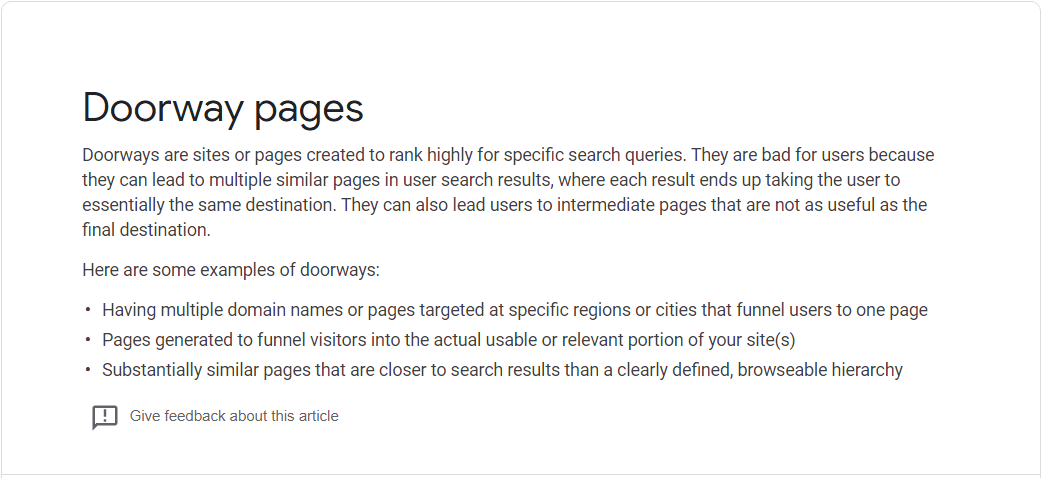Landing pages are designed to provide the user specific information or content, while a door way page is an SEO optimized page that is used to redirect the user to a specific page or pages adding an additional hop for the user. In this article we will highlight doorway pages vs landing pages.
What is a Landing Page
A landing page is a standalone webpage that is created particularly for marketing or advertising reasons. It’s the page the user visits after clicking on an advertisement from different sources, be it social media or search engine paid links.
They are designed with a simple goal in mind, and that is for the call to action (CTA). Their focus is to increase the conversion rates of acquiring a lead in sales. However, this is done in a way that the content is relevant and specific to their targeted visitors for a certain product or service. Landing pages can also be location-based. Take a look at our article to see what local landing pages are.

In the image above, we can see the homepage shows multiple links whereas the landing page has fewer links. Fewer clicks will increase the chances of users straying away from your call to action. In this landing page example, it promotes only a single offer.
However, if you are not careful, you can turn your landing page into a doorway page. This behaviour is frowned upon by Google and it could result in a penalization in search ranking.
See next section to see what can make your page a doorway page.
What is a Doorway Page
In contrast with a Landing page, a doorway page is a webpage designed to rank for a specific query. Rather than focusing on user experience, they give importance to drawing visitors to their page.
Their purpose is to rank high in search results and then redirect or channel the visitor to another website or a different part of the website. This misleads users and serves no value other than leading users to a doorway to some money page or website.
There are two types of doorways: Classic and Content-rich pages. The classic doorway pages consist of poorly written keyword-stuffed text. On the other hand, content-rich doorways can be rich in design and navigation of their webpages, and also provide quality content. But, their calls to action will only lead you to dig deeper into there website. In fact, both these type of doorway pages are favoured by affiliate marketers who earn a commission from new customers.
Doorway pages are not favoured by Google because it can lure the user into multiple similar pages in search results, and end up redirecting the user to the same destination. It’s for this reason, that they have decided to make an update on this. Google’s intention, after all, is to provide the best user experience in search results and direct user to their intended destination.
What Google says about doorway and landing pages
Now that we’ve understood the difference between doorway pages, let’s dig a little deeper and understand why Google penalizes these types of pages.
On first look, you probably are wondering why would Google penalize sites created to rank specific search queries? Isn’t this the work of SEOs that make sure of this such thing? Yet, read it again, and you will realise that it literally means if your main aim is to create garbage content as long as you rank high, then this is wrong. Breaking any of the above rules will cause a penalty from Google.
Let’s take a look at the rules in more detail.
Multiple domains targeted at specific locations: This will increase your risk of being viewed as a Private Blog Network.
Cloaking/Redirection: The user must not be redirected to another part of your website or another website. If the user clicked your link, then it should be presented with the page at hand. Page must be relevant to what the user searched for.
Avoid duplication: Rather than having a good navigation system on your website, you index multiple webpages to rank for different keywords. Problem is your content is very similar and the only change is the targeted keyword.
As of 2015, Google have once again updated the definition for doorway pages. In this definition, we learn a little bit about what is penalized by Google.

In this description, we discover that as long as the pages are not isolated and accessible from the website’s hierarchy, then they will not be viewed as doorway pages. We also learn that location pages are not doorway pages as long as they don’t already exist on site.
Google webmaster has published guidelines and examples on how to avoid doing creating doorway pages.
Final thoughts and considerations
Overall, as Google webmaster puts it, if you are just trying to maximize your search footprint without adding any relevance to your content, you will be penalized.
In the end, Google values user experience the most when ranking your webpage. Writing valuable content with quality links will improve your ranking and in turn improve your customer experience.
At Gainchanger we provide an end to end solution automate the tedious part of SEO to allow you to scale your results exponentially and focus on what really matters.
Get in touch for a free 5-minute consultation or to start scaling your strategies today.


